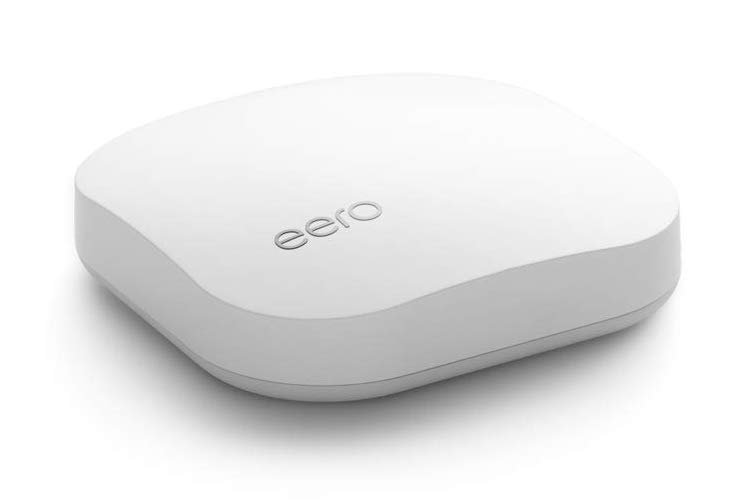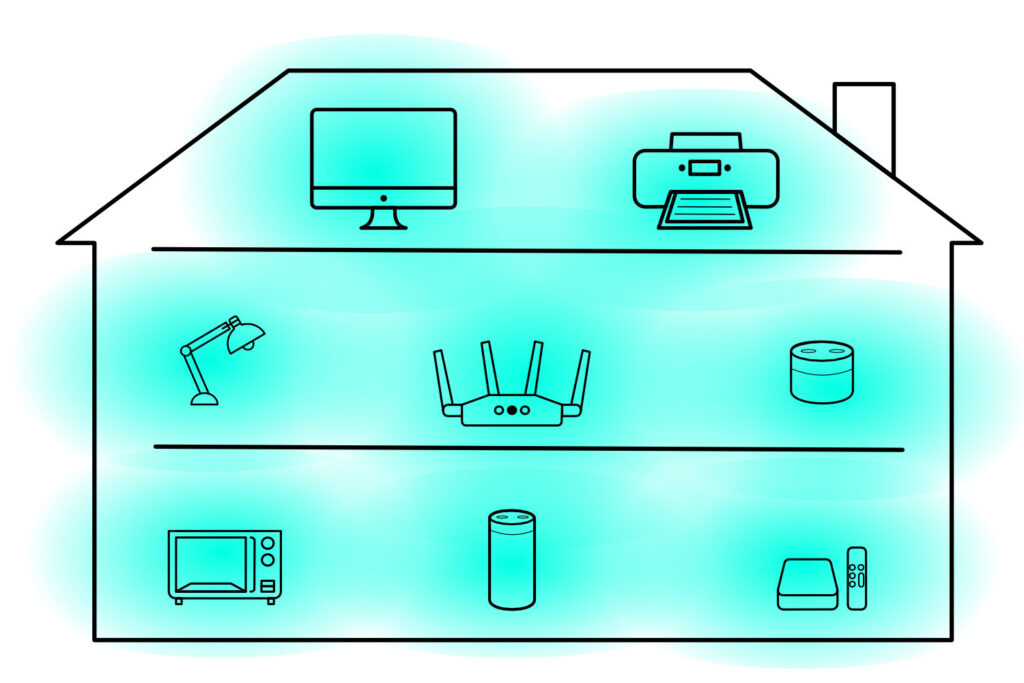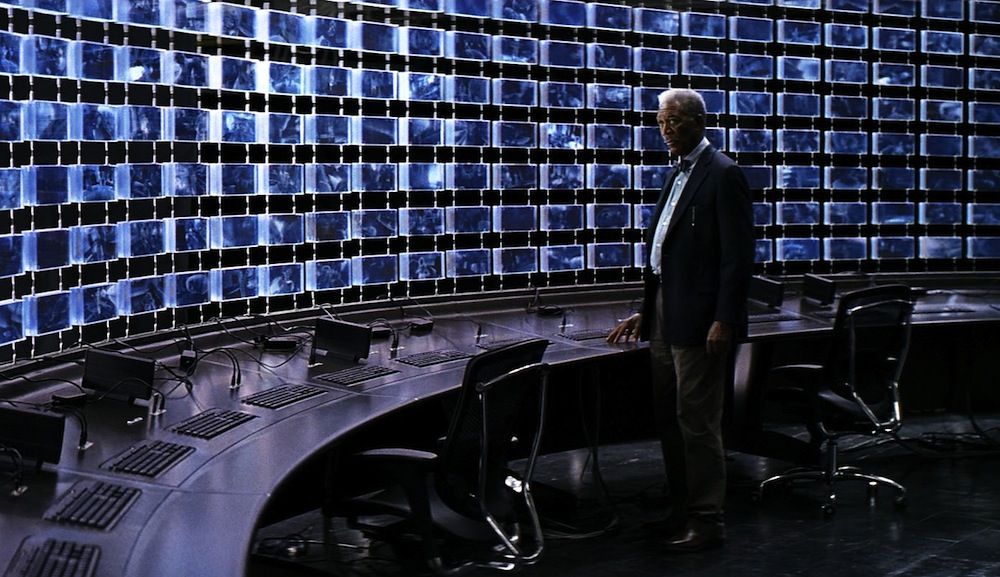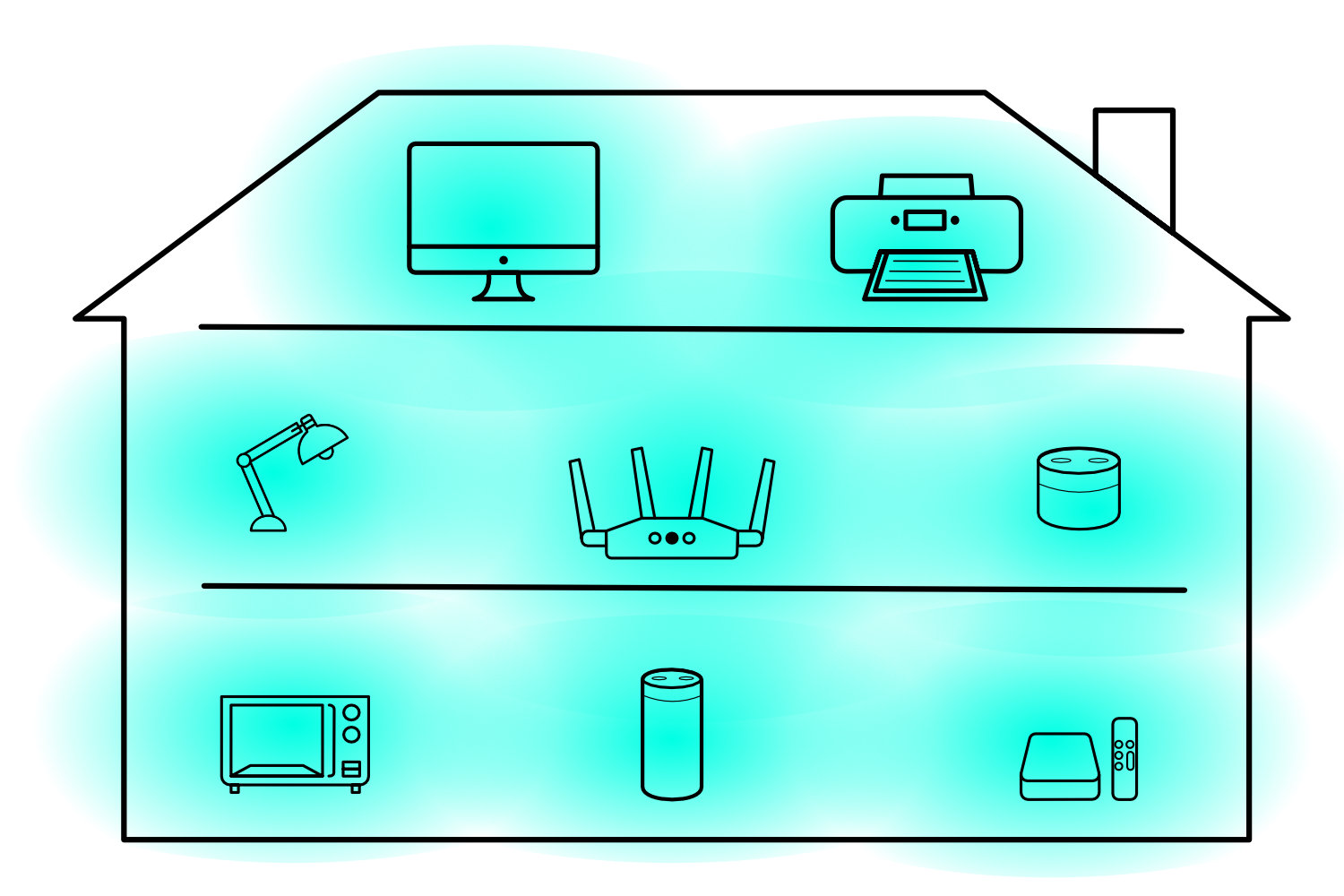Mesh Networking is the Future of Connectivity
Here’s the single truth about home Wifi, it sucks largely and needs a lot of tweaking to improve either its signal strength or reliability. Especially the routers provided by most internet providers, as much as they big up their hardware with marketing claims of full speeds across your entire home, the reality is that they are made as cheaply as possible and limited in capabilities as a result. There’s also many environmental factors that can dampen the progress of even the most optimistic of WiFi signals from your single router, the thickness of bricks of your home can prevent a decent and reliable signal from reaching your loft or the bottom of your garden for example. For example, early 1900’s built houses in England have solid brick walls that doesn’t enable much Wifi through them. There’s home plugs as an option (and a very good one) but the latest tech trend for improving WiFi networks, is a MESH system.

Retail giant Amazon have even started selling their own brand of MESH network kits now, called EERO. This is what actually inspired me to draft out this article. I am, very very surprised that Amazon weren’t more innovative here, as they really had the opportunity to bring MESH technology to the next level. Think about it for a second. WiFi Mesh Nodes are basically dedicated Wi-Fi transmitters and receivers, spread across the house to create a net-work of devices to enable the expansion of the signal by meshing it together. What hugely successful and established internet enabled device is already wide spread in peoples homes and perfect devices to integrate MESH network functionality? Echo.
MESH networks will be something difficult to explain to non-techies at the moment, much like the process of setting up a router for non techies was a decade ago (and maybe still is to some degree). So why would anyone buy Amazon’s Mesh kit over some established network brands like Netgear’s own Orbi, or BT’s devices that appeal to a huge installed customer base from the ISP. I have no idea. Maybe this is just a stop gap for now, until they integrate it into the next generation of higher end Echos like the Echo Plus or Echo Show 8”+. But one thing is for sure, MESH nodes need to be hidden or disguised into other existing domestic goods better to be a success.
Here’s my prediction on this evolution string. In the future, Mesh networking will be integrated in all major electronics in the home. The first step is where we are now, people buying the dedicated hardware to offer this MESH network functionality, which means these weird boxes or discs (called Nodes) you have to strategically place around the house for best coverage, which also means extra plug sockets being used. Then the next step, is we’ll see the Mesh technology integrated into Smart Speakers, or other Smart Home established devices so that you no longer have to use up extra space and plugs. Then in the next 10-20 years when more and more Smart technology is used in the home, everything with a Wireless internet capability will be a MESH connected product to add to your home network. Your printer, your TV Box, your smart cooker, lighting… all of it. Every device in your home that uses the internet will be contributing to making the signal better for every other device, all over your home.

Hopefully, if the right standard is created across all the different manufacturers for this process, it will make this even more seamless. So an end user, would just connect to the network and it will do all the hard work itself. Solving the issue faced with most new technologies, the education which holds back say the current generation of MESH devices. It should be a technology that doesn’t need a call to the family Geek, or for vulnerable technophobes to pay silly membership fees to Tech Support yobs provided by struggling retailers and brands.
I do also think that MESH networks will be the future for outdoor and City Centre connectivity. Plenty of high streets, shopping malls and other places offer FREE WIFI and largely, they all suck. They all use a different provider and rarely is it the same log in from one place to the next, or sometimes even just that the log in page fails to pop up and you give up and just use your SIM card access anyway. Now, what if there was a centralised service provider that used a MESH network approach to cover an entire City. Take London for example. What if every Black Cab, TFL operated Bus, Underground Entrance and lamppost, housed a MESH node. You could have in theory a perfectly stable FREE WIFI network from Kensington, all the way to Stratford in the east, and Trafalgar Square to Finsbury Park. I’m only missing anywhere south of the Thames, because it might get spotty but entirely feasible also. That way, you’d arrive for the day in London, log in once (or just click accept pop up) and you’re done fir the entire day. Whether you’re visiting the museums, meeting mates in Hyde Park or shopping in Westfield. It would take a boatload of pressure off the cellular providers and free up bandwidth to prevent the congestion that plagues us in City Centres or at large events like festivals (the same concept could easily be implemented here also).

If any of you have concerns over the risks of Mesh Networking and the ethics behind possible misuse, a great example of this is in the phenomenal The Dark Knight film. Bruce Wayne uses Lucias’s Sonar concept and creates a Mesh network between every cell phone across the city to locate the Joker. Even Lucias raised concerns over the ethical behind this approach and offered his resignation due this disagreement.
Authored with care by Tom Randall
See my other 22 posts
Permalink
https://www.randallmedia.co.uk/uncategorised/mesh-networking-is-the-future-of-connectivity/